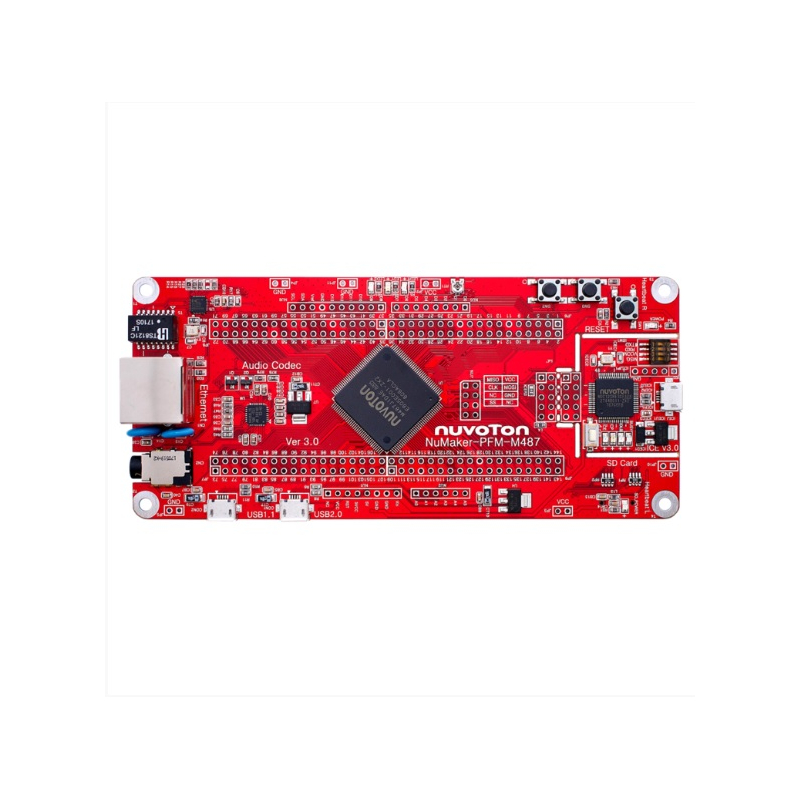NUVOTON NUMAKER PFM M487¶
Overview¶
The NuMaker PFM M487 is an Internet of Things (IoT) application focused platform specially developed by Nuvoton. The PFM-M487 is based on the NuMicro® M487 Ethernet series MCU with ARM® -Cortex®-M4F core.

Features:¶
32-bit Arm Cortex®-M4 M487JIDAE MCU
Core clock upto 192 MHz
512 KB embedded Dual Bank Flash and 160 KB SRAM
Audio codec (NAU88L25) with Microphone In and Headphone Out
Ethernet (IP101GR) for network application
USB 2.0 High-Speed OTG / Host / Device
USB 1.1 Full-Speed OTG / Host / Device
External SPI Flash (Winbond W25Q20) which can be regarded as ROM module
MicroSD Card slot for T-Flash
M487 extended interface 4 connector with 36 pins each
Arduino UNO compatible interface
Three push-buttons: one is for reset and the other two are for user-defined
Four LEDs: one is for power indication and the other three are for user-defined
On-board NU-Link-Me ICE debugger/programmer with SWD connector
More information about the board can be found at the PFM M487 User Manual.
Supported Features¶
The on-board 12-MHz crystal allows the device to run at its maximum operating speed of 192MHz.
The development board configuration supports the following hardware features:
Interface |
Controller |
Driver/Component |
|---|---|---|
NVIC |
on-chip |
nested vectored interrupt controller |
SYSTICK |
on-chip |
system clock |
UART |
on-chip |
serial port |
Other hardware features are not yet supported on Zephyr porting.
More details about the supported peripherals are available in M480 TRM Other hardware features are not currently supported by the Zephyr kernel.
Building and Flashing¶
Flashing¶
Here is an example for the Hello World application.
On board debugger Nu-link-Me can emulate UART0 as a virtual COM port over usb, To enable this, set ISW1 DIP switch 1-3 (TXD RXD VOM) to ON. Connect the PFM M487 IoT to your host computer using the USB port, then run a serial host program to connect with your board. For example:
$ minicom -D /dev/ttyACM0
# From the root of the zephyr repository
west build -b nuvoton_pfm_m487 samples/hello_world
west flash
Debugging¶
Here is an example for the Hello World application.
# From the root of the zephyr repository
west build -b nuvoton_pfm_m487 samples/hello_world
west debug
Step through the application in your debugger.